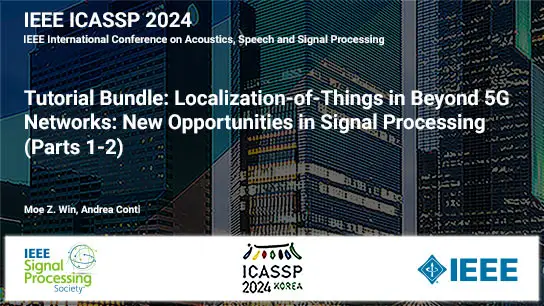Tutorial
30 Oct 2024
The availability of real-time high-accuracy location awareness is essential for current and future wireless applications, particularly those involving Internet-of-Things and beyond 5G ecosystem. Reliable localization and navigation of people, objects, and vehicles – Localization-of-Things (LoT) – is a critical component for a diverse set of applications including connected communities, smart environments, vehicle autonomy, asset tracking, medical services, military systems, and crowd sensing. The coming years will see the emergence of network localization and navigation in challenging environments with sub-meter accuracy and minimal infrastructure requirements.
We will discuss the limitations of traditional positioning, and move on to the key enablers for high-accuracy location awareness. Topics covered will include: fundamental bounds, cooperative algorithms for 5G and B5G standardized scenarios, and network experimentation. Fundamental bounds serve as performance benchmarks, and as a tool for network design. Cooperative algorithms are a way to achieve dramatic performance improvements compared to traditional non-cooperative positioning. To harness these benefits, system designers must consider realistic operational settings; thus, we present the performance of B5G localization in 3GPP-compliant settings. We will also present LoT enablers, including reconfigurable intelligent surfaces, which promise to provide a dramatic gain in terms of localization accuracy and system robustness in next generation networks.



